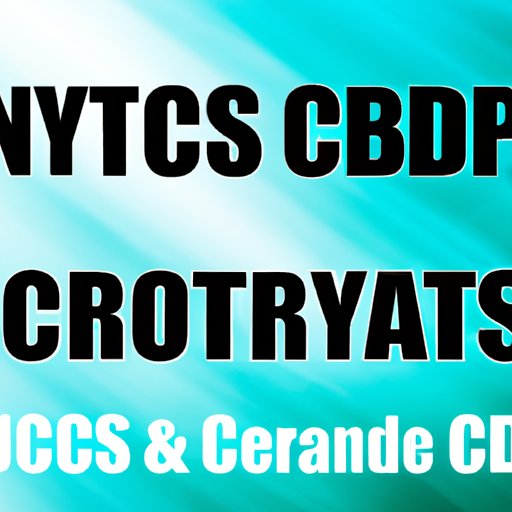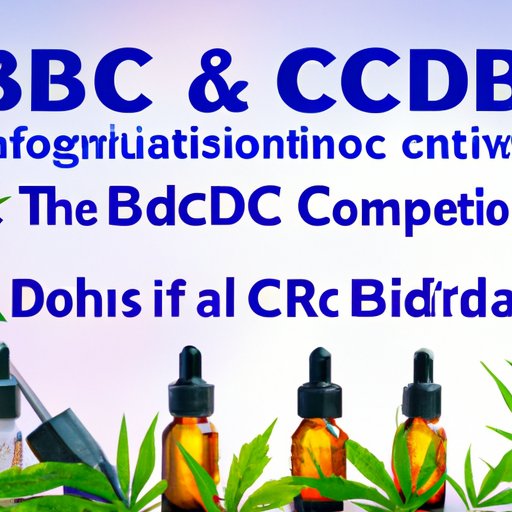Is CBD Natural or Synthetic?
CBD, or cannabidiol, is a popular natural remedy used for a variety of ailments. It is one of the many chemical compounds found in the cannabis plant and is known for its potential therapeutic benefits. Despite its growing popularity, there is a controversy over whether CBD is natural or synthetic. There is also a debate over which form of the compound is best suited for specific medical conditions.
Chemical Composition and Extraction Methods
CBD is a naturally occurring compound and is found in the resinous flower of the cannabis plant. It is a non-psychoactive cannabinoid, meaning it does not cause the “high” associated with marijuana use.
Synthetic CBD, on the other hand, is created in a laboratory and does not come from the cannabis plant. There are several methods used to produce synthetic CBD, including the use of chemicals and genetic engineering. The synthetic version is often made for research purposes or to create a standardized formula.
Extraction methods for natural CBD include CO2 extraction, ethanol extraction, and olive oil extraction. CO2 extraction is the most commonly used method and is considered to be the most efficient and safest. It involves using pressurized carbon dioxide to extract the CBD from the plant material. Ethanol extraction involves using ethanol to extract the CBD from the plant material. Olive oil extraction involves heating the plant material and then adding olive oil to extract the CBD.

Benefits and Drawbacks of Natural and Synthetic CBD
According to several studies, natural CBD is known to have anti-inflammatory, pain-relieving, and anxiety-reducing properties. It is also known to be effective in treating epilepsy and other neurological disorders. Natural CBD is considered to be safe and can be consumed in various forms such as oil, capsules, vapor, and edibles.
Synthetic CBD is often used in scientific research and to create standard formulas in pharmaceuticals. It is considered to be more potent than natural CBD and is often used in high dosages for more severe medical conditions. However, there are potential side effects associated with synthetic CBD, such as nausea and vomiting.
The type of CBD that is best suited for a particular medical condition depends on the specific condition and the individual’s needs. Natural CBD is effective in treating a range of conditions such as anxiety, chronic pain, and epilepsy, while synthetic CBD is more commonly used in severe cases such as cancer and multiple sclerosis.
Regulatory Landscape of CBD
The regulatory landscape of CBD is complex and varies from state to state. In 2018, the FDA approved the first CBD-based drug, Epidiolex, used to treat epilepsy. However, the FDA has not approved any other CBD products and there are regulations around the legal status of CBD.
Individual states have their own laws regarding CBD, and some have more liberal laws than others. It is important to research and understand the laws in your state before buying or using any CBD products. There are also consumer protections in place, such as lab testing and labeling requirements, to ensure the safety and quality of CBD products.

Expert Opinions on Natural vs Synthetic CBD
According to Dr. Ethan Russo, a renowned neurologist and cannabis researcher, natural CBD is preferred over synthetic CBD due to the presence of additional compounds in the natural form. Russo explains that, “Isolating CBD alone is not as effective as taking it along with other cannabinoids and terpenoids found in the plant”.
However, some medical professionals believe that synthetic CBD can provide more consistent dosage and quality for medical purposes. Dr. Leslie Iversen, a pharmacologist and neurobiologist, explains that “synthetic cannabinoids have the potential to provide greater therapeutic relief and fewer side effects than plant-derived cannabinoids”.
Ethical Considerations of CBD
There are concerns over the environmental impact of CBD production and the potential for animal testing in the development of synthetic CBD. It is important to consider the sustainability and fair trade practices of CBD companies before purchasing any products.
There are also potential ethical implications of using CBD, particularly in relation to the criminalization of marijuana and its impact on minority communities. It is important to understand the history and context of cannabis criminalization before engaging with CBD products.
Case Studies
A study published in the New England Journal of Medicine showed that natural CBD was effective in reducing seizures in patients with epilepsy. Another study found that natural CBD was effective in treating anxiety and depression.
There are also several case studies of patients using synthetic CBD to manage severe medical conditions such as cancer and multiple sclerosis. While the effects of synthetic CBD are still being studied, there is evidence to suggest it can be effective in treating these conditions.
Conclusion
In conclusion, the debate over whether CBD is natural or synthetic remains controversial. While natural CBD is considered to be safer and more effective for a range of medical conditions, synthetic CBD can provide more consistent dosages and is considered to be more effective for severe medical conditions. It is important to research and understand the regulations and laws surrounding CBD before buying or using any products.
For readers looking to use natural or synthetic CBD, it is recommended to consult with a medical professional to determine the best course of treatment for individual needs and medical conditions.
